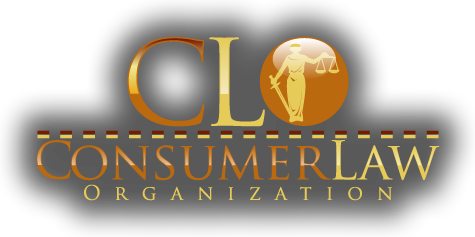Frequently Asked Questions & Answers
THE FAIR DEBT COLLECTION PRACTICES ACT (FDCPA)
FREQUENTLY ASKED QUESTIONS
LAWYER FEES
Q. How much does it cost to talk to you about being harassed by a debt collector?
A. Nothing. We always are happy to talk with you at no charge.
WHAT IF I LEGITIMATELY OWE THE MONEY?
Q. It doesn't matter if you owe the debt or not - the debt collector must still follow the law and cannot harass you.
WHAT IS THE FAIR DEBT COLLECTION PRACTICES ACT (FDCPA)?
Q. I've heard about the FDCPA. Does it apply in my situation?
A. The FDCPA applies when:
• You are a “consumer”
• The debt is a “consumer debt” (personal, household, or family - not business)
• The collector is a "debt collector"
• There is a violation of the FDCPA
Q. What is a "consumer"?
A. A consumer is an individual person. Corporations, partnerships, or any other non-human-being is not a consumer.
Q. What is a "consumer debt"?
A. A consumer debt is a debt that is not a business debt. It could be a car loan, a home loan, a credit card, a medical bill, or other similar debt. Anything that is not a business loan or debt is probably a consumer debt.
Q. I'm not sure if the company calling me is a "debt collector". How do I know?
A. A "debt collector" under the FDCPA is a company that is not the original creditor. It is not the hospital. It is not the credit card company. It is not the auto loan company. It is a third party collector that has been hired by the original creditor or someone else to collect the debt. “Debt collectors” also include "debt buyers" - companies that buy up debt that is in default and then collect it or send it out to collection agencies.
WHAT IS A VIOLATION OF THE FDCPA?
Q. I'm a consumer and am dealing with an old credit card debt. A collection agency is calling me and my neighbors about this debt. How do I know if this violates the FDCPA?
A. If a debt collector acts towards you in any one of the following ways, it is normally a violation of the FDCPA:
• Using unfair conduct towards you
• Making untrue statements to you
• Treating you in an undignified manner
• Treating you without respect
Q. What are some examples of violations of the FDCPA?
A. There are many different ways violations can occur. Here are some examples:
• Unfair conduct
1. Calling your neighbors to embarrass you or calling your co-workers.
2. Suing you on a debt that you do not owe.
3. Placing false information on your credit reports.
4. Leaving voice mail messages on your cell phone, work phone or home phone.
Most voice mail messages violate the FDCPA.
• Untrue statements
1. Lying to you about whether you owe the money. Debt collectors often say you owe your spouse's (or ex-spouse’s) debts, even if you do not.
2. Telling you that you will go to jail unless you pay for the old credit card debt.
• Treating you in an undignified way or without respect
1. Using profanity.
2. Insulting you.
3. Calling you repeatedly.
4. Yelling at you.
WHAT DO I GET FROM THE FDCPA?
Q. The FDCPA definitely covers my situation. How does the FDCPA help me?
A. The FDCPA provides four significant benefits:
• A free lawyer paid for by the defendant debt collector.
• Costs and expenses of litigation, paid for by defendant debt collector.
• Actual damages if you have been harmed by the harassing debt collector.
• $1,000 in statutory damages if you have no actual damages.
Q. How do I get a free lawyer paid for by the debt collector?
A. If we are successful in settling your case, our fee comes from the settlement amount that is paid by the debt collector. If we try the case, the court can award attorney's fees and make the defendant debt collector pay it.
Q. What about the costs and expenses of litigation? I’ve always heard it is expensive to file a lawsuit.
A. The defendant debt collector can be required to pay the costs and expenses of the litigation. We advance that money by taking your case - if we are not successful we do not get it back. If we are successful, then we get reimbursed that money out of the settlement or the judgment that the defendant debt collector pays. In no scenario do you have to pay the litigation fees to us without it being part of a settlement that you receive.
HOW DO I TAKE ACTION NOW?
Q. What do I do if I am getting collection calls or letters right now from a bill collector?
A. Make sure you document the calls coming in by using our collection log or something similar. We do NOT advise recording calls (it is OK to record voicemails), as this can lead to you being prosecuted in other states. We don't agree with those prosecutions, but you should avoid the possibility if you can.
Q. I want to discuss this with you. What do I do?
A. It's simple. Contact us today as there are time limits to consider, so the sooner you contact us, the sooner we can start the process of helping you to deal with your situation.
